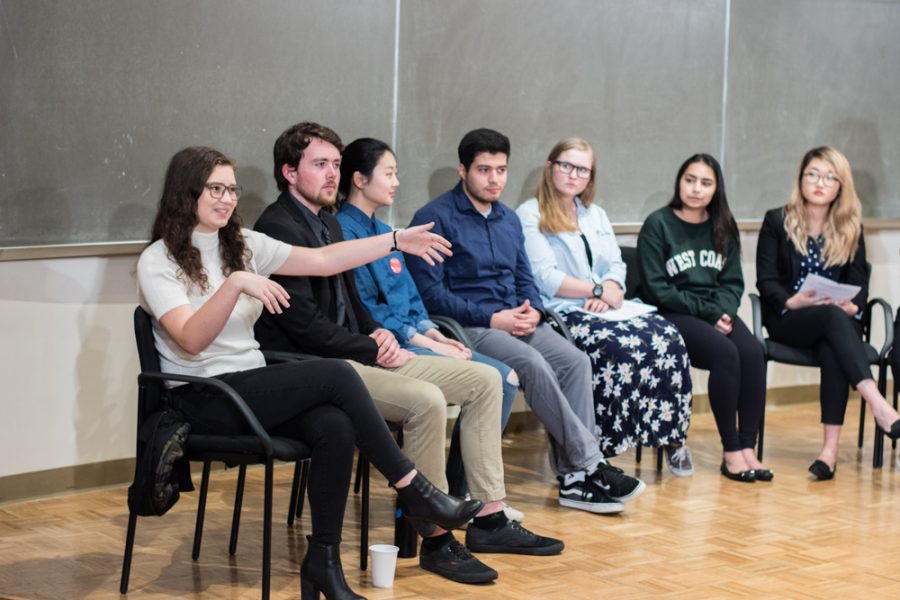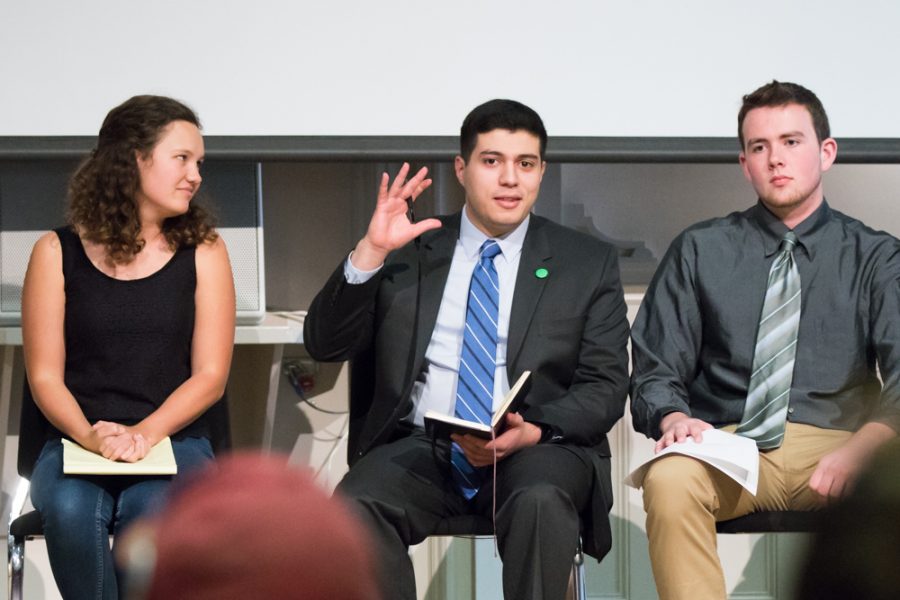A resolution calling for the Whitman College administration to stop requiring future Whitman applicants to report standardized test scores was passed unanimously by ASWC last Sunday.
Changing admissions policies to be test-optional has seen a significant amount of support in recent years in the liberal arts community. Many of Whitman’s comparison schools which the college measures itself against –– including Bates College, Dickinson College, Franklin and Marshall College, Wesleyan University and Union College –– have already changed their policies to make the submission of standardized test scores an optional portion of a student’s application.
The ASWC resolution emphasizes the role of standardized testing in admissions as one that perpetuates inequality and lends an advantage to students from more privileged backgrounds. Due to a variety of factors, including unequal access to supplemental materials and tutoring, the average score of white students is almost 300 points higher than their black peers, while the scores of students from high-income families exceed those of students with low-income families by almost 400 points.
Sophomore ASWC Senator Arthur Shemitz, who wrote the new resolution, believes strongly that standardized testing poses a significant obstacle to economic and racial diversity in higher education. Especially in light of recent issues of economic diversity at Whitman, Shemitz believes that a push towards test-optional admissions could begin to shift demographics and combat inequalities on campus.
“Standardized testing is proven to be stratified across racial, socioeconomic and gender lines,” said Shemitz. “Taking and prepping for the SAT is expensive, and the test locks people out of top schools if they don’t have the resources to demonstrate their academic ability in the same way as people who can take multi-thousand dollar prep courses. Standardized testing is obviously an unequal institution … and schools that go test-optional see an increase in applications from students of color, and first-generation/working class students.”
Former Multicultural Recruitment intern for the Office of Admission Beverly Li ‘14 has lent a great deal of her own support to the push for test-optional admissions. She, like Shemitz, takes issue with the inherent inequalities perpetuated by a standardized testing system.
“Standardized test scores at Whitman heavily influence merit aid decisions, which often continues to benefit the already privileged –– those who have the ability to test well based off of various courses they’ve been able to take to prepare for the test,” said Li in an email. “There is a higher correlation between standardized testing and income than there is between standardized testing and aptitude. It’s problematic.
While Li believes that going test-optional could be a way for Whitman to begin addressing issues of diversity and inequality on campus, she remains adamant that there is much more work to be done on those fronts.
“This is a good first step –– this is not the solution, and it should not be considered the solution to all of our diversity issues,” said Li.
According to Tony Cabasco, dean of admission and financial aid, while standardized test scores do factor into admission at Whitman, the focus is never on the test scores alone.
Whitman has considered going test-optional in the past, both in 2002 and again over the course of the 2005-2006 academic year. Both times, the SAT was decided to still work well for Whitman admissions.
“In 2002, we concluded that the SAT does work for Whitman –– it helps us predict who’s going to be academically successful at Whitman in their first year. In 2006, the SAT was found to be an even stronger indicator of success than high school GPA –– that was extremely interesting,” said Cabasco.
Cabasco is open to reexamining the question of standardized testing. However, the decision to stop testing would have to be made jointly by the Office of Admission and faculty, as testing is required by the faculty code.
“This could be a way to get a new pool of more diverse applicants, but more importantly, it’s something we should be doing,” said Shemitz. “This has been the fastest year yet for schools switching to test-optional admissions, and doing so is very much on the right side of history.”








